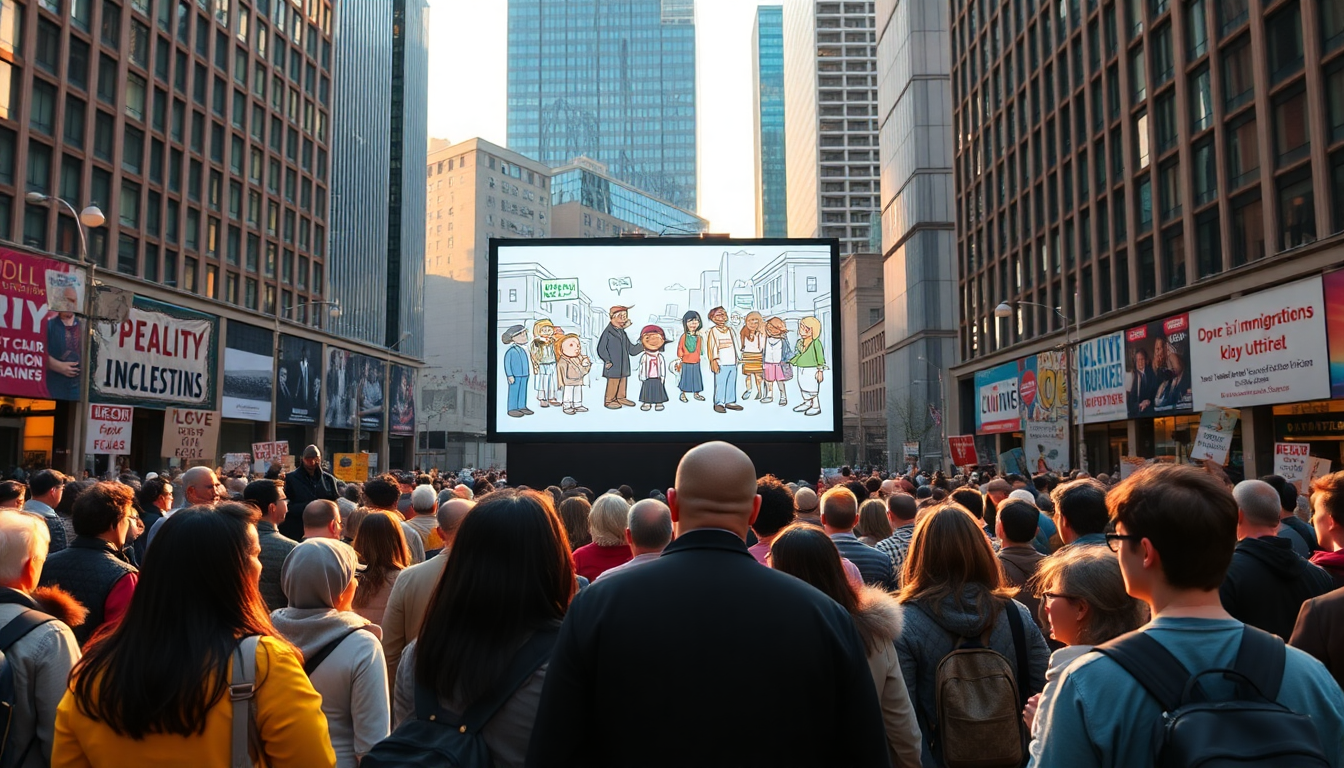Table of Contents
The relationship between how the media portrays immigration and what the public thinks about it is definitely a complicated issue. Recent events have shown just how much entertainment, especially animated series, can shape the conversation around serious topics like immigration enforcement.
One surprising example was when the United States Department of Homeland Security used a still from a recent episode of South Park to promote their Immigration and Customs Enforcement (ICE) job portals. This unexpected blend of pop culture and policy makes us wonder: what kind of impact do these portrayals really have on public opinion and our understanding of policy?
The Intersection of Entertainment and Policy
In a world where social media and entertainment collide, we can’t overlook the influence shows like South Park have. The teaser that sparked the Department of Homeland Security’s promotion racked up over a million views on platforms like YouTube.
Isn’t it fascinating how quickly such content can grab the public’s attention? The specific scene featuring ICE officers allegedly raiding the fictional town of South Park mixes humor with a serious subject, which could change how viewers perceive immigration enforcement.
This mix of satire and social commentary can engage audiences in a way that encourages them to think critically about the realities of immigration policies.
Creators Trey Parker and Matt Stone are known for their sharp and often provocative content.
Their knack for crafting timely narratives allows them to tackle current events—including immigration—in a way that resonates with viewers. However, using humor to address sensitive topics can be a double-edged sword: it can trivialize serious issues or spark deeper discussions.
Which side do you think it leans toward more often?
Public Reactions and Policy Implications
The immediate public reaction to the teaser highlights a broader trend in how media shapes societal views on immigration. While some people may find the portrayal to be a funny take on a serious issue, others might argue that it oversimplifies the complexities surrounding immigration enforcement. The feedback from political figures, including remarks from Donald Trump’s White House, shows just how divisive these portrayals can be. The claim that South Park is no longer relevant seems to be more of a defense against criticism, while still acknowledging the show’s influence on public discourse.
As the series continues to explore controversial topics in its new episodes, the potential to shape public opinion remains significant. This dynamic interaction between media, public perception, and policy can lead to real implications for how immigration policies are viewed and implemented. The ongoing conversations sparked by shows like South Park encourage audiences to question and engage with the systems governing immigration, creating a more informed citizenry. How can we harness this conversation to make a difference?
Looking Ahead: Media’s Role in Immigration Discourse
As we look to the future, the role of media in shaping immigration perceptions is likely to become even more critical. With digital platforms becoming more prevalent, the reach of entertainment media has expanded, allowing for a variety of narratives and viewpoints to emerge. The real challenge? Distinguishing between satire and reality while navigating the information presented to us.
Moreover, as policymakers weigh public sentiment on immigration, the impact of media will be a crucial factor to consider. Engaging with popular culture can offer insights into public concerns and foster more nuanced discussions around immigration policies. In this shifting landscape, both media creators and consumers have significant power in shaping the narrative surrounding immigration and enforcement agencies. Are we ready to take on that responsibility together?





